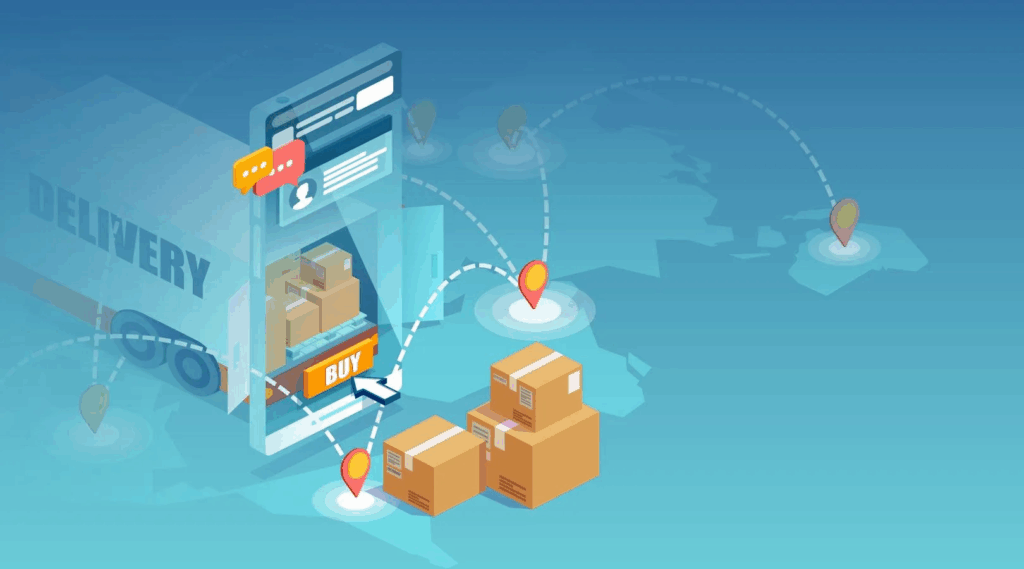Why DTC Brands Embrace Cloud Logistics for Smart Control
Direct-to-consumer (DTC) retail is changing fast. Small and large brands are no longer limited to local markets, thanks to online platforms like Shopify, WooCommerce, and Kickstarter. These tools make it easy to sell products directly to customers, but running an online store is not just about having a website. One of the biggest challenges for the brands is how to handle logistics—keeping track of stock, shipping orders quickly, and managing returns. This is where cloud-based logistics comes in, offering a smarter way to stay organized and meet customer expectations across different regions.

The Changing Needs of DTC Brands
Unlike traditional retail, where wholesalers and distributors handle stock, DTC brands must oversee every part of the journey from fulfillment to returns. The pressure to maintain visibility across multiple warehouses, coordinate with international carriers, and manage rising return volumes has made old models of logistics insufficient. Inventory issues can quickly translate into lost sales or damaged reputations.
Cloud logistics provides a scalable answer. Businesses gain real-time data, synchronized systems, and global visibility by shifting operations into a flexible digital infrastructure. The emphasis is no longer on just moving products—it is on managing information with precision and making smart decisions to enhance customer trust.
Smarter Inventory Control with Cloud Logistics
Inventory control in the DTC space is complex. Brands often serve multiple regions with varying demand, while operating with lean resources compared to large retailers.
Avoiding Overstock and Stockouts
One of the most expensive mistakes in DTC retail is holding too much or too little inventory. Cloud logistics tools help balance supply and demand by providing accurate forecasts and immediate alerts when levels fall outside safe ranges. This ensures that products remain available without locking up unnecessary capital in storage.
Improving Multi-Warehouse Coordination
Many brands operate through multiple warehouses, especially when they expand internationally. Online logistics service connects these facilities under one unified view, so brands can manage regional stock efficiently. This avoids duplication, reduces shipping delays, and optimizes fulfillment routes for each order.

Why Cloud Logistics Matters for Global Shipping
Global shipping brings extraordinary opportunities and extraordinary risks. Customs delays, carrier mismatches, or inefficient routing can all disrupt operations. Without synchronized systems, even small brands risk being overwhelmed by complexity. Cloud logistics minimizes these issues by consolidating data into one accessible platform.
For example, when a European DTC fashion label launches on Kickstarter, its orders may span dozens of countries. Managing this manually is almost impossible. Cloud-enabled logistics, paired with professional 3PL warehouse service providers, ensures that inventory can be positioned closer to customers, while returns and replacements are processed quickly. The result is faster delivery times and lower shipping costs—critical factors for customer loyalty.
Postalparcel’s Role in Supporting DTC Brands
While many logistics solutions market themselves as “systems,” Postalparcel offers a service-oriented approach that focuses on real-world execution. Its strength lies in combining carrier management and delivery services with comprehensive inventory and order management services. For DTC brands operating on Shopify, WooCommerce, or other platforms, this means they can focus on building customer relationships while Postalparcel handles the logistics complexity.
One advantage is its global network of carrier partnerships, which ensures cost-effective delivery routes for international shipments. Another is its ability to integrate order flows from multiple e-commerce platforms into one streamlined process. Whether it’s managing returns, overseeing 4PL coordination, or optimizing fulfillment workflows, Postalparcel functions as an extension of the brand rather than just a background tool.
A Success Story in Action
Consider a mid-sized beauty brand that launched through Kickstarter and rapidly grew into multiple markets, from Europe to Southeast Asia. The company faced severe bottlenecks in global shipping: inconsistent carrier performance in different countries, rising return rates due to misrouted parcels, and inventory scattered across regional warehouses.
By partnering with Postalparcel, the brand gained unified carrier management, which resolved the carrier inconsistency problem. Inventory data across all 3PL warehouses was synchronized in real time, and customers benefited from reliable tracking updates. The company also leaned on Postalparcel’s order management service, which enabled automated fulfillment even during promotional peaks. Within months, delivery times dropped by 30%, and customer satisfaction scores improved dramatically. This story shows that with the right logistics partner, scaling globally is not just achievable but sustainable.

Key Benefits for DTC Brands
- Streamlined Fulfillment
Cloud logistics reduces the manual labor of coordinating warehouses and dropshipping operations. Automation means faster order processing and fewer mistakes. - Reliable Returns Management
For global customers, easy returns are as important as quick delivery. Cloud integration ensures returns are processed efficiently, preserving customer trust. - Enhanced Tracking
Transparency in shipping is no longer optional. Real-time tracking builds confidence, giving customers control and reassurance over their purchases. - Cost Efficiency Through Carrier Optimization
By centralizing carrier management, brands can avoid costly mismatches and find the best balance between price and speed. - Scalability Across Markets
Cloud-based logistics can easily accommodate expansion into new regions, offering brands a flexible path to growth.
The Future of DTC and Cloud Logistics
The momentum behind cloud logistics shows no signs of slowing. As consumers demand faster global shipping, more accurate tracking, and seamless returns, the technology will continue to evolve. Meanwhile, services like Postalparcel highlight that brands don’t need to build these systems alone. Partnering with a logistics service provider makes advanced supply chain capabilities accessible without heavy infrastructure investment.
For DTC brands, the choice is clear: embrace cloud logistics, refine inventory control, and create a customer journey that rivals the biggest players in the industry. The winners will be those who not only sell great products but also deliver them with precision and reliability worldwide.

Conclusion
The rise of cloud logistics is reshaping the DTC landscape. Smarter inventory control, integrated global shipping, and data-driven fulfillment strategies are no longer luxuries—they are essentials. By adopting cloud logistics, brands can unlock efficiency, reduce risk, and build stronger connections with customers.
Postalparcel‘s logistics services stand out as a proven partner in this space, delivering real-world solutions in carrier management, delivery, and order fulfillment. For DTC businesses looking to expand confidently across borders, the combination of cloud logistics and a trusted service provider makes everyday challenges manageable and global growth achievable.
Industry Insights
news via inbox
Nulla turp dis cursus. Integer liberos euismod pretium faucibua








